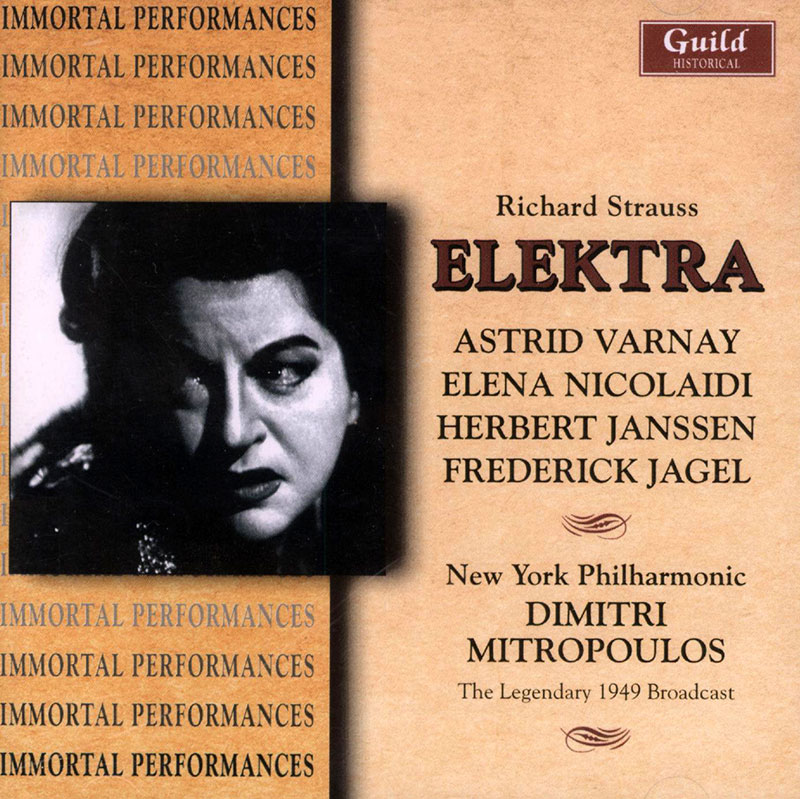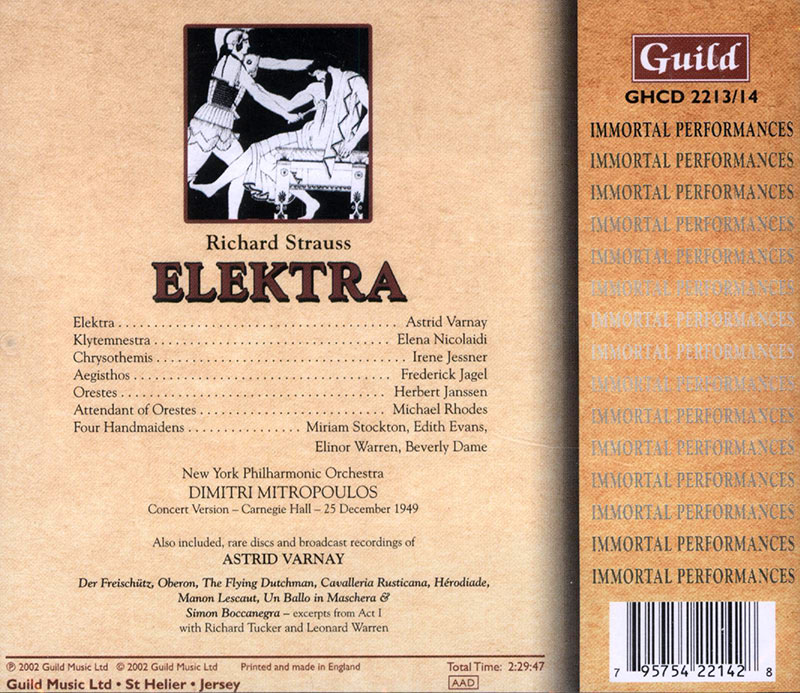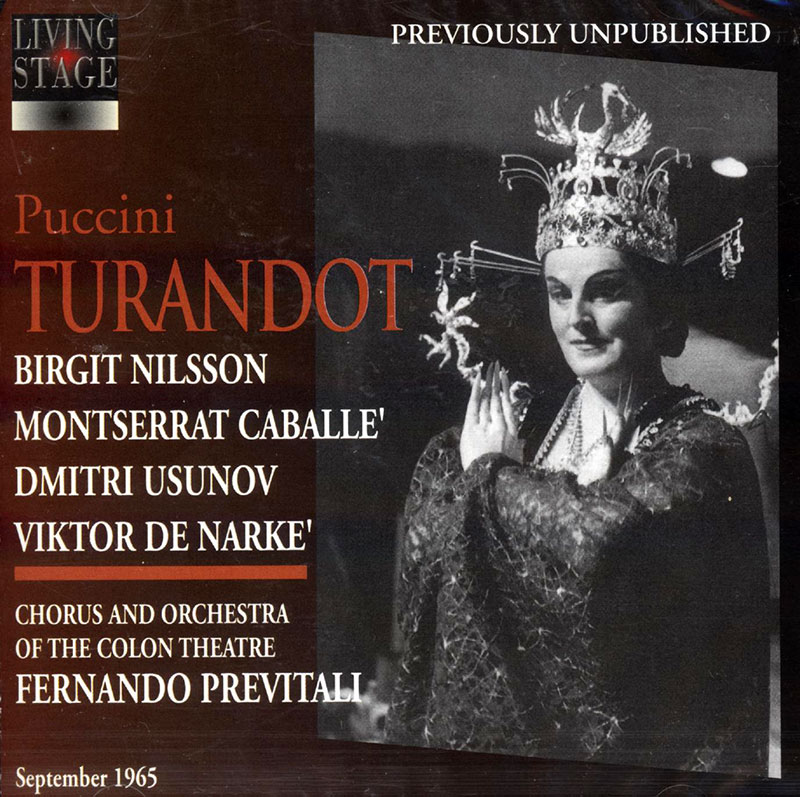Logowanie
Dziś nikt już tak genialnie nie jazzuje!
Bobby Hutcherson, Joe Sample
San Francisco
SHM-CD/SACD - NOWY FORMAT - DŻWIĘK TAK CZYSTY, JAK Z CZASU WIELKIEGO WYBUCHU!
Wayne Shorter, Freddie Hubbard, Herbie Hancock, Ron Carter, Elvin Jones
Speak no evil
UHQCD - dotknij Oryginału - MQA (Master Quality Authenticated)
Chesky! Niezmiennie perfekcyjny
Winylowy niezbędnik
ClearAudio
Double Matrix Professional - Sonic
najbardziej inteligentna i skuteczna pralka do płyt winylowych wszelkiego typu - całkowicie automatyczna
STRAUSS R., Astrid Varnay, Elena Nicolaidi, Herbert Jennsen, New York Philharmonic, Dimitri Mitropoulos
Elektra

- ELEKTRA >>> mp3 <<<
- Richard Strauss (1864 - 1949)
- Orest
- Giuseppe Verdi (1813 - 1901)
- Simon Boccanegra
- Act. I (Duet) - Boccanegra and Amelia >>> mp3 <<<
- Bonusy:
- ASTRID VARNAY
- Der Freischütz, Oberon, The Flying Dutchman, Cavalleria Rusticana, Hérodiade,
- Manon Lescaut, Un Ballo in Maschera &
- Simon Boccanegra – excerpts from Act I
- with Richard Tucker and Leonard Warren
- Astrid Varnay - soprano
- Elena Nicolaidi - mezzosopran
- Herbert Jennsen - baritone
- New York Philharmonic - orchestra
- Dimitri Mitropoulos - conductor
- STRAUSS R.
- 1949 - DIMITRI MITROPOULOS - Broadcast Recording
Considered by many music critics to be the greatest performance of Elektra in its era, the broadcast is an electrifying experience of Astrid Varnay at her best. She is supported by a fine cast and superlative orchestra galvanized by the conducting of Mitropoulos to incendiary effect. The performance stunned all who heard it and it has been extolled ever since. Now hear it yourself. Includes a booklet offering notes on the performance and singers. Unforgettable! GHCD 2213/14 ------------ Elektra was one of Astrid Varnay’s great roles, but she never recorded it commercially. Now, however, we have at least three live recordings, of which this is the earliest; among the others are a splendid German radio production from 1953 (Koch -Schwann) and a disappointing Salzburg Festival account with Karajan from 1964 (Orfeo). At Carnegie Hall on Christmas afternoon (!) 1949 she was in flawless, fearless voice and working with a conductor of towering eloquence and urgency. The result is electric and often almost unbearably tense, but by no means lacking in subtlety or tenderness (the Recognition scene is movingly expressive). Elena Nicolaidi's Klytemnestra is one of the best-sung accounts on record: she never spits or snarls, and often persuades you that she was beautiful once, probably not long ago. Irene Jessner is an excellent Chrysothemis, much lighter-voiced than Varnay, convincingly the younger sister, but well able to hold her own in the penultimate scene. Chrysothemis, however, is the character most affected by the cuts in this performance: two quite short, the third enormous, nearly 60 pages of orchestral score. The second scene between EIektra and Chrysothemis is entirely removed, partly in order to provide an interval! A normal recording of Elektra lasts about 100 minutes or a little more; this one runs for 88. Still, this provides room for a generous supplement of arias from Varnay's other repertory, of which the most interesting are two substantial scenes (20 minutes in all) from Simon Boccanegra. Guild gives no details of date or conductor, but I think I can help: Metropolitan Opera, 1950, the conductor Fritz Stiedry. Tucker and Warren are both in fine voice and Varnay adds a touch of Italian warmth to her heroic gleam. This is not always true in the seven studio recordings of arias, with a not very good orchestra conducted by her husband Hermann (not Herman nor Herbert, as the booklet renames him) Weigert. As Agathe, Reiza and Senta the voice is grand, full and firm, but there is too much metal to it for Santuzza or Manon Lescaut, especially in a recording which adds a fierce glare to her tone. Because the Koch-Schwann account is complete it should take first place among Varnay's Elektra recordings, and Guild's version is better at rendering singers' voices than orchestral detail. But the chemistry between Varnay and Mitropoulos is quite extraordinary, and her voice in 1949 was at its freshest. At the price, owners of the Koch-Schwann might well spoil themselves by acquiring the Guild as well. Michael Oliver



































